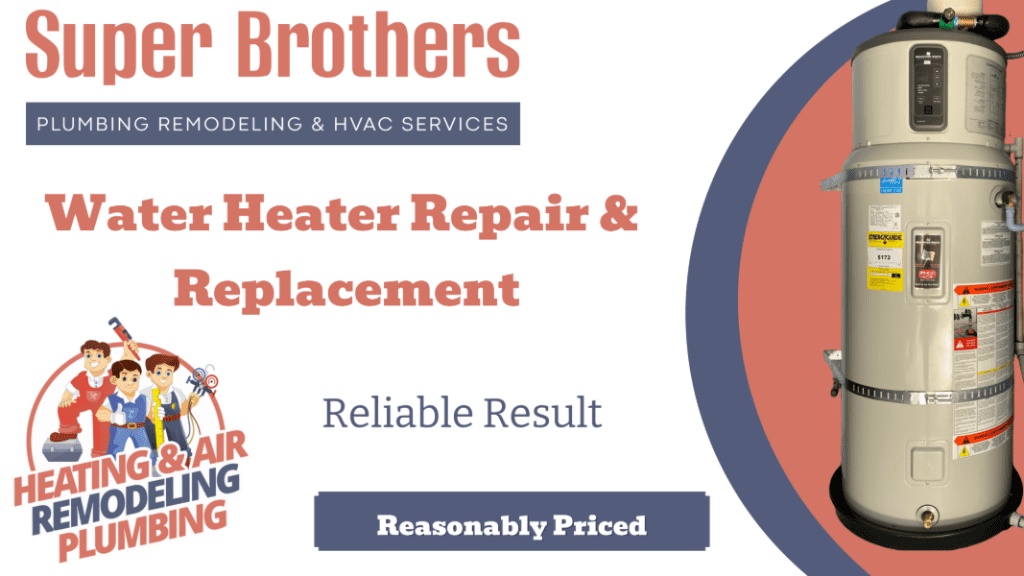Are you tired of unexpected water heater breakdowns leaving you with cold showers? Don’t worry, our plumbing company has got you covered! Understanding water heater warranties is the key to ensuring peace of mind and avoiding unnecessary expenses for our customers. Whether you’re a homeowner or a potential buyer of appliances, knowing the ins and outs of water heater warranties can save you from future headaches. From standard warranties that come with new water heaters to extended coverage offered by home warranty companies, there’s a range of options available to suit your needs and protect your investment in our product. In this comprehensive guide, we’ll walk you through everything you need to know about water heater warranties – from what they cover and how long they last, to the benefits they provide. So let’s dive in and discover how these warranties can keep your hot water flowing without breaking the bank!
How Water Heater Warranties Work
Protecting Against Defects and Malfunctions
Water heater warranties are essential for home buyers purchasing appliances like water heaters. These warranties protect against unexpected repairs and malfunctions. When you buy a water heater, the manufacturer guarantees that it will function properly for a certain period of time. If any plumbing issues arise during this period, the warranty ensures that the manufacturer will provide free repairs or replacement.
Duration and Coverage Limits
Typically, water heater warranties for appliances have two components: the duration and coverage limits. The duration refers to how long the warranty remains valid for home buyers. Most manufacturers offer warranties ranging from 3 to 12 years, depending on the brand and model’s availability.
Product warranties typically specify coverage limits for the included parts or components. Most manufacturers have variations in their warranty packages, but they generally cover defects in materials or workmanship. It’s important to note that these warranties do not usually cover damage caused by improper installation, neglect, or misuse. Availability of warranties may vary.
Filing a Warranty Claim
If home buyers encounter an issue with their water heater within the home warranties period, filing a claim for the product is relatively straightforward. Start by contacting the manufacturer or their designated service center. They will guide customers through the process and may require certain information such as proof of purchase, model number, and serial number.
Once your product warranty claim is approved, a home warranty company technician will be dispatched to assess the problem. If it’s determined that repairs cannot be made, they will arrange for a replacement unit to be installed free of charge. Home warranty companies
Importance of Proper Maintenance
To ensure the validity of your water heater warranty, proper maintenance is crucial for customers. The company’s warranty documentation often includes specific requirements for the system’s upkeep. This may involve regular flushing of sediment buildup or annual inspections by a licensed professional in the comfort of your home.
By following these maintenance guidelines diligently, you not only extend the lifespan of your water heater but also maintain its warranty validity for your home. Neglecting proper maintenance can void your warranty, leaving you responsible for any repairs or replacements for your customers.
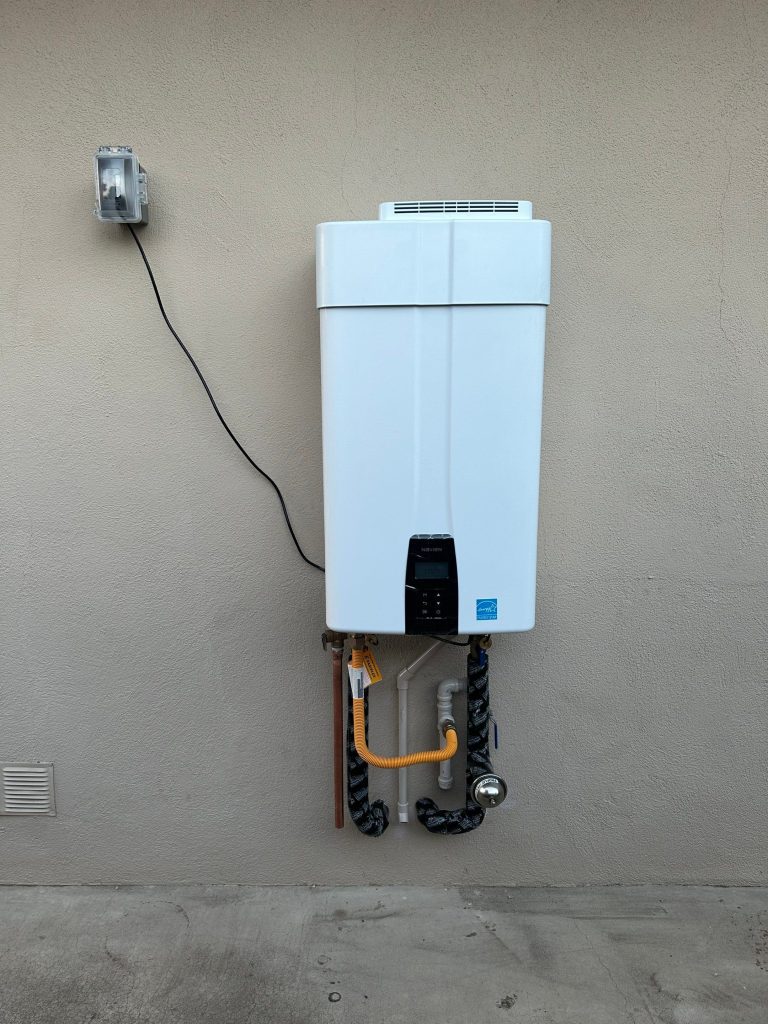
Basics of Manufacturers’ Water Heater Warranties
Understanding the warranty offered by the manufacturer is crucial for customers. A warranty acts as a guarantee from the company that they will repair or replace any defects in their product within a specified period. This is especially important for customers who are looking to protect their home and rely on HBW for quality products.
Overview of Major Manufacturers Offering Water Heater Warranties
Several renowned water heater manufacturers, such as Rheem, Bradford White, AO Smith, and Rinnai, provide comprehensive warranty coverage through their company. These warranty companies aim to instill confidence in consumers by standing behind their home products.
Differences Between Standard and Extended Manufacturer Warranties
Manufacturer warranties, provided by a company, generally come in two forms: standard and extended. Standard warranties, offered by home builders (HBW), typically cover parts replacement or repairs for a specific duration after purchase. They often range from 3 to 6 years but may vary depending on the manufacturer. On the other hand, extended warranties, also offered by HBW, offer longer coverage periods beyond the standard warranty duration at an additional cost. These extended plans can extend coverage up to 10 years or more.
Common Terms and Conditions Found in Manufacturer Warranties
Manufacturer warranties from different companies contain certain terms and conditions that consumers should be aware of before making a purchase decision for their home. While these terms may differ slightly among warranty companies, some common provisions include the company’s specific coverage and limitations. It is important to understand the terms and conditions of the warranty provided by the company in order to make an informed decision about protecting your home with an HBW warranty.
- Proper installation by a licensed professional is crucial for product warranty purposes. Many manufacturers require proof of professional installation from home warranty companies to ensure optimal performance. This is especially important for home buyers warranty coverage.
- Regular maintenance is essential for upholding the validity of product warranties, especially those offered by home warranty companies. These home buyers warranties often require periodic maintenance checks to ensure coverage. It’s important to choose a reliable home warranty company that offers comprehensive coverage and excellent customer service.
- Home warranty (HBW) registration requirements: Certain home manufacturers mandate registering the product within a specific timeframe after purchase to activate the home warranty.
- Limitations on liability: Manufacturers often limit their liability for damages caused by improper use or negligence. This is especially true when it comes to product warranties and home warranty companies. For example, if you have a water heater warranty from a reputable HBW, they may have specific limitations on their liability in case of any damages caused by improper use or negligence.
- Exclusions: Product warranties, including home warranties and water heater warranties, may exclude coverage for specific components or damages resulting from certain circumstances, such as acts of nature. HBW is a popular provider of home warranties.
Factors That Can Void a Manufacturer’s Warranty
While manufacturers aim to provide reliable home warranty (hbw) coverage, there are certain factors that can potentially void the warranty. It is important to be aware of these factors to ensure that your home warranty remains valid throughout its duration. Some common instances that can void a manufacturer’s home warranty include
- Improper installation of a home water heater by a non-licensed professional or not following the manufacturer’s guidelines may void the HBW warranty.
- Unauthorized repairs or modifications made to the home water heater can nullify the HBW warranty.
- Failure to perform regular home maintenance can lead to voiding of the warranty. Neglecting routine hbw requirements specified in the warranty terms and conditions can also result in the warranty being voided.
- Use of incompatible parts or accessories in your home: Installing non-approved parts or accessories that adversely affect the performance of the hbw water heater may render the warranty invalid.
Understanding water heater warranties offered by major hbw manufacturers is essential for consumers seeking long-term protection for their investment in a home. By familiarizing yourself with differentiating between standard and extended warranties, understanding common terms and conditions, and being mindful of factors that can void a warranty, you can make an informed decision when purchasing a new water heater for your home.
Understanding Coverage and Cost of Water Heater Warranties in 2023
Understanding the coverage and cost of home warranties and product warranties, such as HBW, is crucial. In 2023, there are current trends in coverage options for water heater warranties that you should be aware of. Several factors influence the cost of these home warranties and product warranties. Let’s delve into these aspects further.
Current Trends in Coverage Options for Water Heater Warranties
Water heater warranties, including home warranty (hbw) options, have evolved to meet consumers’ needs. Basic warranty coverage protects against manufacturing defects and malfunctions within a specified period. Additional coverage options now include extended plans that encompass heating elements, thermostats, valves, and labor costs.
To cater to varying consumer preferences, some warranty providers also offer customizable coverage plans. This allows homeowners to select specific components they want covered based on their requirements or concerns. For example:
- Comprehensive home warranty coverage: This all-inclusive home warranty plan covers not only the essential parts but also ancillary components like pressure relief valves or temperature sensors.
- Limited home coverage: A more affordable home option that focuses on critical home elements while excluding less vital home parts that may have a lower likelihood of home failure.
By staying informed about these current trends in home warranty coverage options, you can choose a home warranty plan that best suits your home budget and needs.
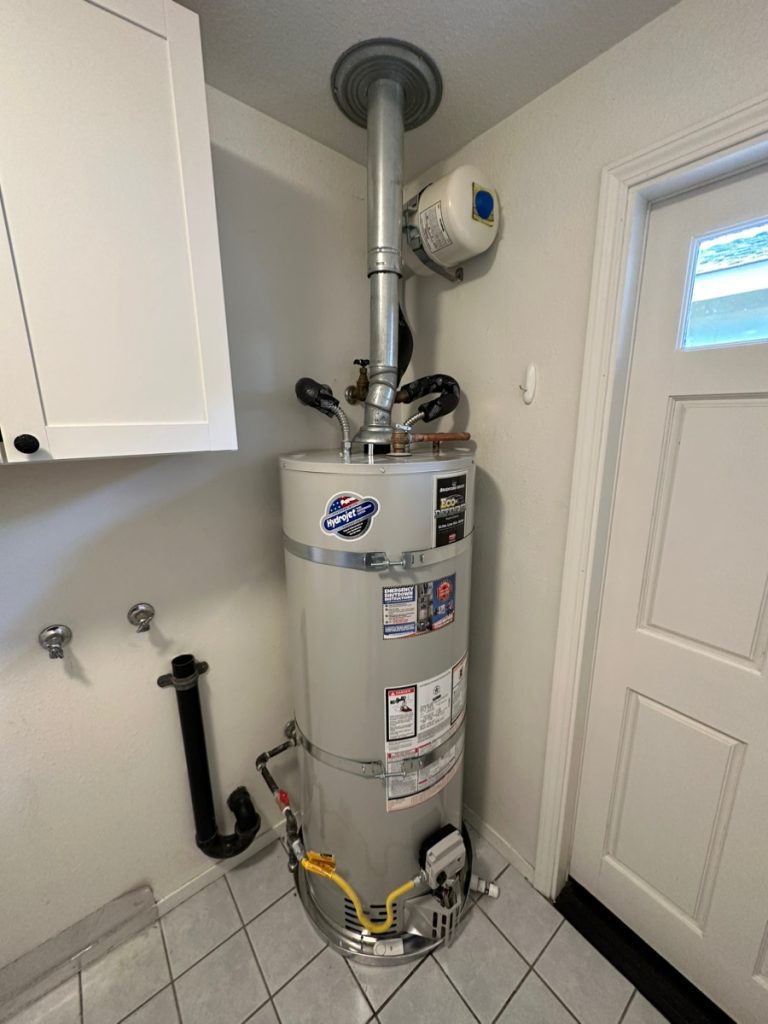
Factors Influencing the Cost of Water Heater Warranties in 2023
Several factors determine the cost of water heater warranties for home owners this year. One significant factor is the length of coverage offered by the home warranty provider. Typically ranging from one to ten years, longer home warranty periods tend to come with higher fees due to increased protection duration.
Another influential factor when purchasing a home warranty is the age of your water heater. Older home units may have higher premiums as they are more prone to breakdowns and require more frequent repairs compared to newer models.
Furthermore, the geographical location of a home can impact warranty costs. Areas with harsher water conditions or extreme climates may experience higher rates due to the increased wear and tear on water heaters in the home.
Considering these factors, it is essential to evaluate the value for money offered by different home warranty providers before making a decision.
Comparison Between Basic and Comprehensive Coverage Plans
When choosing a water heater warranty for your home, you will encounter options for both basic and comprehensive coverage plans. While basic home plans generally provide protection against manufacturing defects, comprehensive home plans offer broader coverage that encompasses additional components and labor costs.
Basic coverage plans are often more affordable, making them an attractive choice for homeowners on a tight budget. However, they may not cover all potential issues that could arise during the warranty period. On the other hand, comprehensive coverage plans provide peace of mind by offering extensive protection against various malfunctions.
To determine which home plan is most suitable for your needs, consider factors such as the age of your home water heater, its condition, and your budgetary constraints.
Considerations When Evaluating the Value for Money Offered by Different Warranty Providers
When assessing the value for money provided by different home warranty providers in 2023, several considerations come into play.
- Home coverage terms: Carefully review what each home insurance plan covers and any exclusions mentioned in the terms and conditions.
- Reputation: Research customer reviews and ratings to gauge how well each home provider honors their warranties.
- Prompt assistance during home breakdowns or emergencies is crucial for customer service.
Key Factors to Consider when Choosing a Water Heater Warranty
Before making your decision about the best warranty option for your home water heater, there are several key factors to consider. These factors will ensure that you are protected in case of any issues with your water heater. Let’s take a closer look at these home warranty factors.
Types of issues typically covered by water heater warranties
Water heater warranties for your home can vary in terms of coverage. It is crucial to understand what is included in the warranty to ensure adequate protection for potential problems. Some common issues covered by home water heater warranties include.
- Tank leaks or failure
- Malfunctioning heating elements
- Faulty thermostats
- Defective pressure relief valves
By familiarizing yourself with the specific issues covered by different home warranty options, you can choose one that provides comprehensive protection for your water heater at home.
Length and extent of coverage provided by various warranty options
Another crucial factor to consider is the length and extent of coverage offered by different warranty options. While some warranties may only provide basic coverage for a limited period, others offer more extensive protection over an extended timeframe. When comparing warranty options, pay attention to:
- Duration of coverage (e.g., 1 year, 5 years, etc.)
- Parts and labor included in the warranty
- Any exclusions or limitations on coverage
Opting for a longer and more comprehensive warranty can save you from unexpected repair costs down the line.
Availability and responsiveness of customer support from warranty providers
Having reliable customer support from your warranty provider is essential if you encounter any issues with your water heater. Look for companies that offer prompt assistance and have accessible customer service channels such as phone, email, or live chat. A responsive customer support team can make all the difference.
Additional benefits or perks offered with certain warranty plans
Some warranty packages come with additional benefits or perks that can enhance your overall experience. These may include:
- Priority service for repairs
- Extended coverage options
- Discounts on future purchases
Considering these extras can add value to your warranty package and provide you with added peace of mind.
Comparing Warranty Coverage for Tank Type and Tankless Water Heaters
Tank-type water heaters and tankless models offer different warranty coverage options. Understanding these differences is crucial when considering the overall cost of owning and maintaining a water heater.
Types of Warranties
Warranty coverage for tank-type water heaters typically includes both parts and labor. This means that if any component malfunctions during the warranty period, the manufacturer will provide replacement parts and cover the cost of labor to fix the issue. In some cases, manufacturers may even offer full replacement of the entire unit if a major problem arises.
On the other hand, warranties for tankless water heaters can vary depending on the manufacturer. Some warranties only cover specific components such as heat exchangers or electronic controls, while others may provide comprehensive coverage similar to tank-type warranties.
Specific Components Covered
For tank-type water heaters, common components covered under warranty include:
- Heating elements
- Thermostats
- Pressure relief valves
- Anode rods
- Gas burners (for gas-powered units)
- Tanks
In contrast, tankless water heater warranties often focus on critical components like:
- Heat exchangers
- Electronic controls
- Venting systems (if included)
Understanding which specific parts are covered by each type’s warranty is essential in assessing potential repair or replacement costs over time.
Impact on Overall Cost
The varying warranty coverage between tank-type and tankless water heaters can significantly impact overall costs throughout their lifespan. While tank-type warranties generally encompass multiple components and labor expenses, repairs or replacements for certain parts may still incur out-of-pocket expenses once the warranty expires.
For instance, if a gas burner fails in a tank-type unit after its warranty ends, homeowners would need to bear the cost of purchasing a new burner along with additional labor charges. On the other hand, some manufacturers offer extended warranties that cover full replacements even after standard warranties expire.
In the case of tankless water heaters, warranty coverage often focuses on critical components like heat exchangers. Since these components are crucial for the unit’s operation, having them covered under warranty can save homeowners from substantial repair or replacement costs.
Choosing Based on Warranty Options
When deciding between a tank-type or tankless water heater, it’s essential to consider the available warranty options. Here are some key factors to keep in mind:
- Evaluate the specific components covered by each type’s warranty.
- Consider the duration of the warranty and whether extended warranties are available.
- Research manufacturer reputation and customer reviews regarding warranty claims and support.
- Assess potential out-of-pocket expenses for repairs or replacements not covered by the warranty.
By carefully considering these factors, homeowners can make an informed decision based on their preferences and budgetary constraints.
Understanding water heater warranties is crucial when comparing different types of units. Whether it’s a tank-type or tankless model, being aware of what is covered under warranty can help homeowners plan for potential repair or replacement costs down the line.
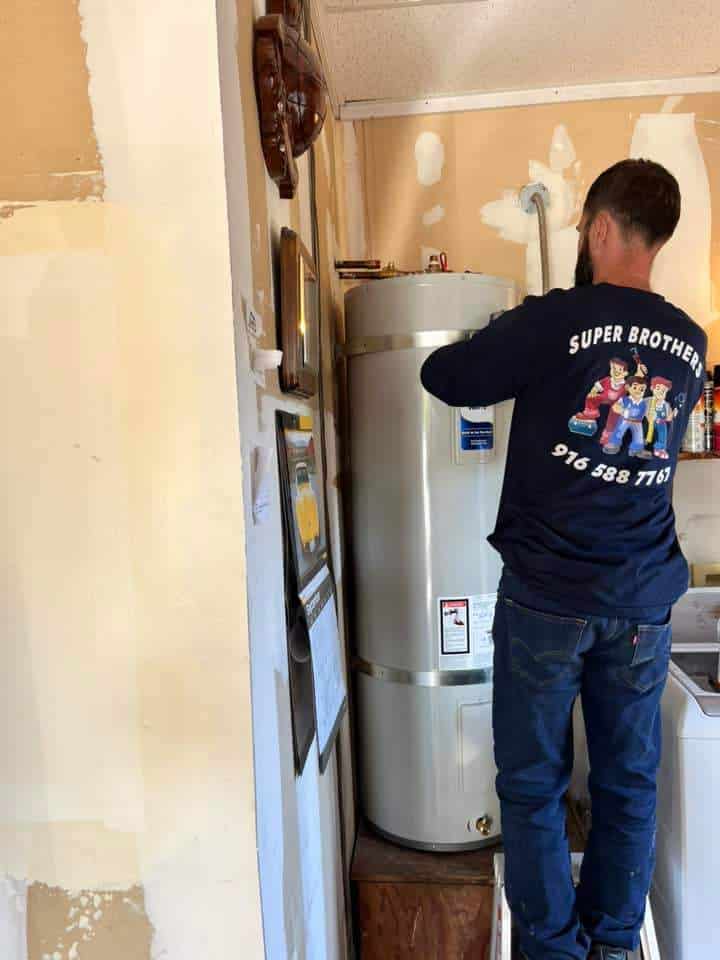
Common Misconceptions about Water Heater Warranties
Myth Debunking: Unlimited Lifetime Coverage Claims
One common misconception about water heater warranties is the belief in unlimited lifetime coverage claims. Many consumers are enticed by advertisements promising a lifetime of protection for their water heaters. However, it is important to understand that these claims often come with certain limitations and conditions.
While some manufacturers may offer extended warranties that cover the lifespan of the product, it is crucial to carefully read the fine print. These warranties usually have specific terms and conditions, such as regular maintenance requirements or exclusions for certain types of damage. In reality, true unlimited lifetime coverage without any restrictions is rare.
Clarification on Exclusions from Warranty Coverage
Another aspect that requires understanding. While warranties provide essential protection against unexpected repairs, they usually do not cover every possible scenario.
Common exclusions include damage caused by improper installation or neglectful maintenance. If a water heater fails due to lack of proper care or if it was not installed according to manufacturer guidelines, the warranty may be voided. It is crucial to follow installation instructions carefully and perform routine maintenance tasks recommended by the manufacturer to ensure warranty coverage remains intact.
Most warranties exclude damages resulting from natural disasters or acts of God, such as floods or earthquakes. These events are considered external factors beyond the control of manufacturers and are generally not covered under standard warranty agreements.
Addressing Misconceptions about Installation and Maintenance Responsibility
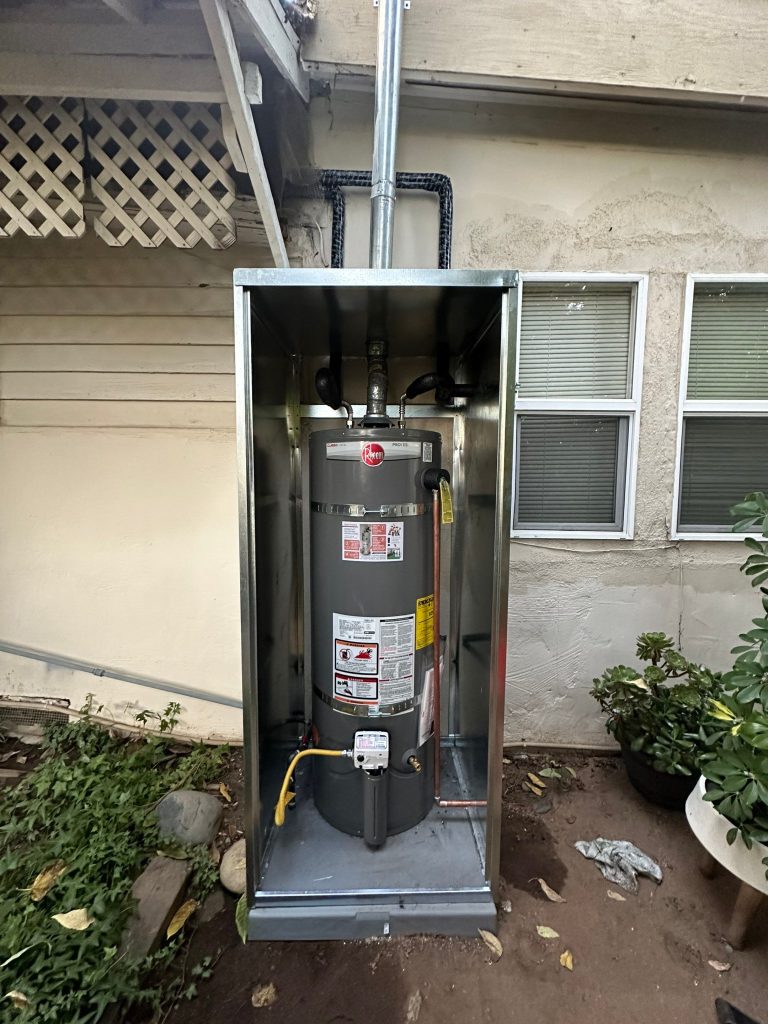
A prevalent misconception regarding water heater warranties relates to who bears the responsibility for installation and maintenance. Some individuals believe that manufacturers should take full responsibility for any issues arising from faulty installation or lack of proper upkeep.
However, it is important to note that manufacturers typically provide instructions for installation and maintenance in their product manuals. Following these guidelines ensures optimal performance and longevity of the water heater while maintaining warranty coverage.
It’s crucial for homeowners to hire qualified professionals for installation and conduct regular maintenance tasks themselves or through professional services. By taking proper care of their water heaters, individuals can avoid any potential warranty disputes and ensure the longevity of their units.
Common Misunderstandings about Transferability of Warranties
Lastly, there are often misunderstandings surrounding the transferability of warranties. Some consumers assume that if they sell their property, the warranty automatically transfers to the new owner. However, this is not always the case.
Many warranties have specific terms regarding transferability, which may require certain conditions to be met or additional fees to be paid. It is essential for both buyers and sellers to review these terms carefully and follow the necessary steps outlined by the manufacturer to ensure a smooth transfer of warranty coverage.
Making Informed Decisions about Water Heater Warranties
In conclusion, understanding water heater warranties is crucial for making informed decisions. By familiarizing yourself with how these warranties work and the coverage they provide, you can ensure that you choose the best warranty option for your needs.
Manufacturers’ water heater warranties serve as a basic form of protection for your investment. It is important to carefully review the terms and conditions of these warranties to understand what is covered and for how long. This will help you gauge the level of protection provided by different manufacturers.
When considering a water heater warranty in 2023, it is essential to understand both the coverage and cost involved. By comparing various warranty options, you can find one that strikes a balance between comprehensive coverage and affordability.
Several key factors should be taken into account when choosing a water heater warranty. These include the length of coverage, whether it includes labor costs, any exclusions or limitations, and the reputation of the manufacturer. Considering these factors will help you make an informed decision that suits your specific needs.
It’s also important to note that there are differences in warranty coverage between tank type and tankless water heaters. Understanding these distinctions will enable you to select a warranty that aligns with your chosen type of water heater.
Lastly, it’s common for misconceptions to arise regarding water heater warranties. By educating yourself about these misconceptions, such as assuming all repairs are covered or neglecting regular maintenance requirements, you can avoid potential pitfalls and ensure maximum benefit from your chosen warranty.
In summary, understanding water heater warranties empowers you to make informed decisions when purchasing a new unit. By considering factors such as coverage, cost, and manufacturer reputation, you can choose a warranty that provides optimal protection for your investment. Remember to steer clear of common misconceptions surrounding these warranties and always read through the terms and conditions thoroughly before making a decision.
FAQs
Q: Are water heater warranties transferable if I sell my home?
A: It depends on the manufacturer and the terms of the warranty. Some warranties are transferable, while others are not. Make sure to check with the manufacturer to determine if your warranty can be transferred.
Q: Do water heater warranties cover regular maintenance?
A: No, most warranties do not cover regular maintenance. It is important to perform routine maintenance on your water heater to ensure its longevity and efficiency.
Q: What should I do if my water heater malfunctions during the warranty period?
A: If your water heater malfunctions within the warranty period, contact the manufacturer or their authorized service provider as specified in the warranty documentation. They will guide you through the process of getting repairs or a replacement.
Q: Can I extend my water heater warranty after it expires?
A: Some manufacturers offer extended warranty options that can be purchased before or after the original warranty expires. Check with your manufacturer for details on extending your coverage.
Q: Is it worth buying an extended warranty for my water heater?
A: The value of an extended warranty depends on various factors such as the cost of repairs, likelihood of issues arising, and personal preference for added peace of mind. Consider these factors before deciding whether an extended warranty is worth it for you.
